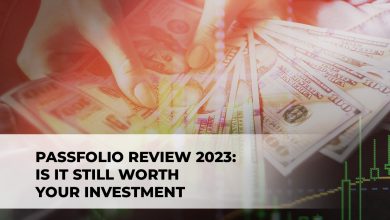
Vesting is the process by which an individual or organization acquires the right to own or use a particular asset, such as stock options, pension plans, or other retirement assets. Vesting is a very important but sometimes overlooked aspect of financial planning because it directly impacts an individual’s ability to achieve financial stability and independence.
Generally, vesting refers to a period of time during which an individual must meet certain conditions in order to have full ownership of an asset or right. These criteria may include the length of service, amount of contributions made to a pension system, and other similar indicators.
Acquisition Of Personal Rights
When an individual meets the required vesting conditions, he or she is considered to be the owner of the asset or right in question. The person now has the unrestricted right to use or transfer the asset as he or she sees fit.
Vesting is, therefore a key concept for anyone seeking long-term financial security, especially in the context of employer-sponsored pension systems. Those who understand the vesting process can make more informed investment decisions and manage their money with greater confidence and security.

Some Key Examples Of Vesting
“Vesting” is a common topic in employee benefits discussions. Vesting refers to the gradual acquisition of property rights over time. In the context of employee benefits, vesting generally refers to the period during which an employee is entitled to benefits offered by his or her employer.
Examples of vesting include 401(k) plans, stock options, and other forms of equity compensation. For example, in a 401(k) plan, an employee may be required to work for his or her company for a specified period of time (e.g., three years) before receiving the full amount of employer contributions to the plan. If the employee leaves the company before the vesting period expires, he or she may be entitled to only a portion of the contributions made to the retirement account; the remainder is forfeited.
Is There Vesting For Stock Awards?
Other stock awards, such as stock options, may also have vesting periods. For example, an employee may be granted stock options that vest over a four-year period. Twenty-five percent of the options vest in the first year, the other twenty-five percent in the second year, and so on. This incentivizes employees to stay with the company and strive for long-term progress rather than immediately cashing in their rights.
The concept of vesting, therefore, is very important to anyone who uses or wants to use company pension benefits. Understanding the terms of your benefits and how they vest will help you make informed professional and financial decisions.
What Does Vesting Mean In A Contract?
Vesting is a contractual term that describes the regular acquisition of an interest or ownership in a property, asset or another financial instrument over time. It is common for companies to offer vesting options to their employees to encourage long-term commitment and align the employees’ interests with those of the company.
When a company offers vesting options, the employee receives a fixed percentage of the company’s stock for a specified period of time. This is usually done through stock options or restricted stock units (RSUs). For example, an employee may be granted 1,000 RSUs with a vesting period of four years from the date of hire. This means that 25 percent of the RSUs vest after the first year of employment, and the remaining 75 percent vest over the next three years.
Vesting is an important component of employee compensation because it motivates employees to stay with the company and contribute to its long-term success. It also helps companies attract and retain the best employees, as they receive a significant share of the company’s growth and profitability. Employees and investors should be aware of vesting alternatives when determining stock-based compensation’s value and potential payout.






